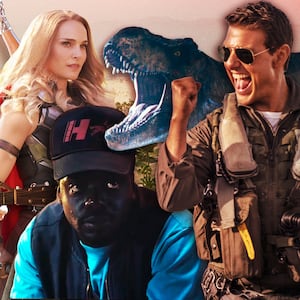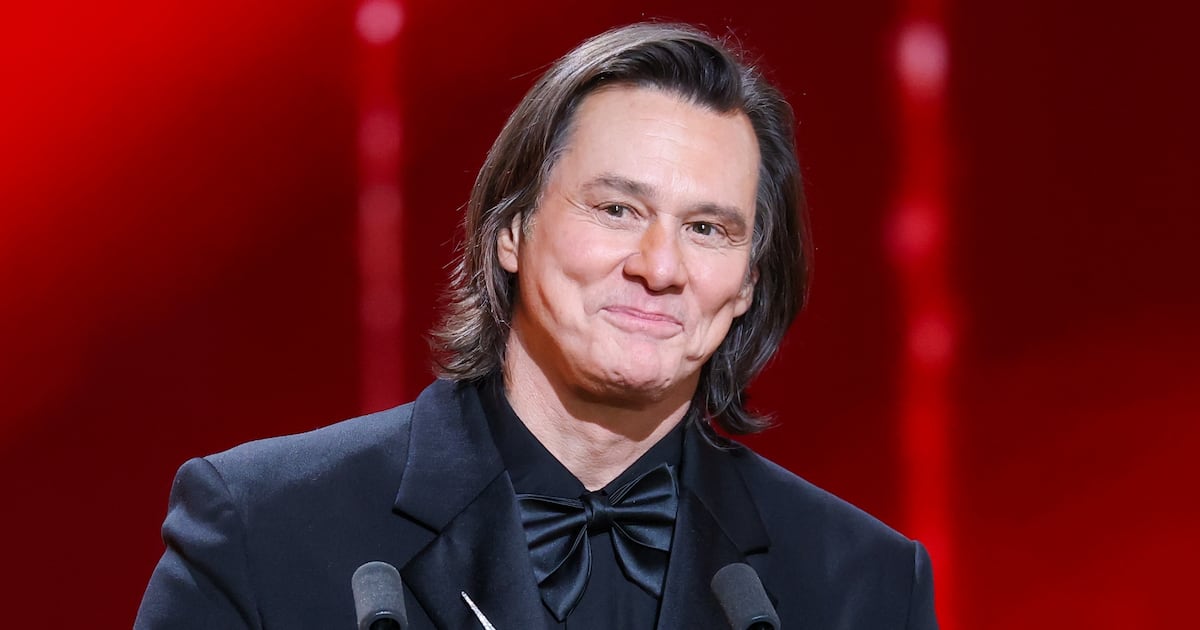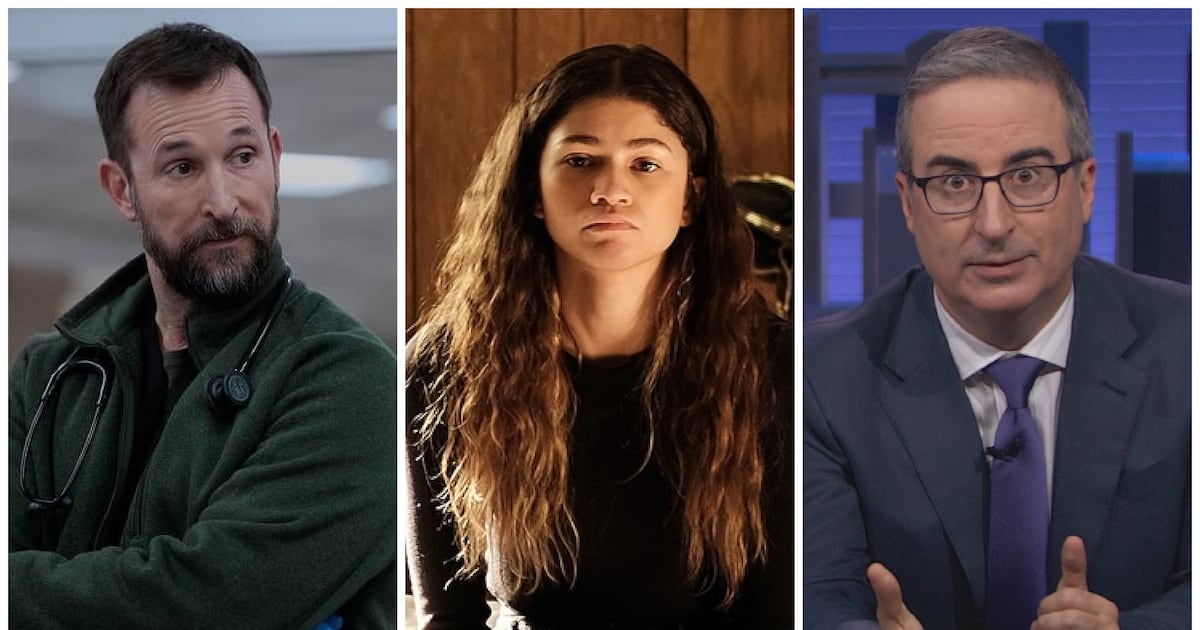The Northman is one of the best films of the year: a bruising, bloody Viking action-adventure that roars with maniacal ferocity and enchants with hallucinatory intrigue. Conceived and executed on an epic scale, imbued with timeless themes of vengeance, honor and destiny, and saturated with the idiosyncratic folk-horror personality of its author, it’s precisely the sort of unique large-scale original everyone claims Hollywood is no longer interested in producing. Yet despite those exemplary qualities, as well as a star-studded cast (led by Alexander Skarsgård, Nicole Kidman, Anya Taylor-Joy, Ethan Hawke, and Willem Dafoe) and widespread critical acclaim, Robert Eggers’ third feature—following the haunting The Witch and batshit-insane The Lighthouse—has underperformed in the U.S., with a multiplex run that currently stands at $33 million (against a reported $70-$90 million budget). In a theatrical environment now primarily dominated by superhero tentpoles and IP-centric blockbusters, Eggers’ ancient revenge saga is beginning to resemble another depressing reminder that, perhaps, the old ways are fading fast.
Nonetheless, such dismaying larger concerns are no reflection on the excellence of Eggers’ latest, a rampaging beast about an orphaned Viking prince named Amleth (Skarsgård) seeking payback against the uncle (Claes Bang) who murdered his father (Hawke) and married his mother (Kidman). Based on the legend that inspired none other than William Shakespeare’s Hamlet, and infused with the fantastical fury of its kindred cinematic spirit Conan the Barbarian, the 38-year-old auteur’s vicious genre film is a gem of idiosyncratic rage and irrepressible menace, led by a towering turn from Skarsgård as a betrayed and abandoned warrior hell-bent on reclaiming his birthright.
Rife with magic, malevolence and more marauding combat than any 2022 release to date, it’s not to be missed, and audiences now have another opportunity to experience—and embrace—it courtesy of its recent arrival on VOD. To celebrate that debut, we spoke with Eggers about The Northman’s box-office fate, the modern moviegoing landscape, the reports that the film has been misguidedly embraced by white nationalists, and his future big- and small-screen plans.
Now that The Northman has more or less concluded its theatrical run, are you disappointed in its box-office performance?
I think it met the expectations of a bad marketplace [laughs]. Am I disappointed that, three to four weeks in, we’re on VOD because that’s the way things are done in the post-COVID world? Yeah. But it’s doing great on VOD, so there you go. When I see, on social media, people taking a photo of themselves watching The Northman on their laptop and being excited about it, it draws a tear to my eye. But it is what it is.
A lot has been written about what the film’s underperformance “means.” Do you think it indicates dire things about the prospects for large-scale original films that aren’t based on pre-existing IP?
Yeah, it’s the decline of Western civilization, what can I say? Look around. Yeah, it’s horrible. [laughs]
Going forward, does it make you rethink your own strategy regarding the types of projects you want to tackle?
I need to restrategize in terms of what I’m pitching to a studio. Like, how do I be me and survive in this environment? Because while they wouldn’t have me anyway, I wouldn’t want to direct a Marvel movie, and I’m also not going to try to get the rights to Spawn or something either. I’m going to keep doing what I’m going to do. But I know that everybody’s nervous right now, you know? Everybody’s nervous. And it’s justifiable.

Alexander Skarsgård stars as Amleth and Anya Taylor-Joy as Olga in director Robert Eggers’ Viking epic The Northman
Aidan Monaghan/Focus FeaturesFor you, is The Northman’s theatrical fate at least partially offset by the enthusiastic critical reaction to the film, as well as the devoted fanbase it’s inspired?
It feels good when people like the film and understand the film, and it’s done well critically and seems to be finding audiences. Of course that’s satisfying. I’m proud of the film. Nothing’s perfect, but I’m proud of the film.
Ahead of The Northman’s release, you spoke about wanting to reclaim Viking lore from white nationalists who had appropriated it. Yet the film nonetheless appears to have been embraced by some of them online. Are you disheartened by that turn of events? Do you think they’ve misunderstood the film, and your intentions?
I think that if you are someone who’s searching with a hammer, then everything is a nail. And I can’t help that attitude. [laughs]
Does it bother you that some extremists seemed to react to it in that way?
How could it not? But like I said, I said what I said.
You’ve previously done witches and sea creatures—why now Vikings?
I was not interested in Vikings and the macho stereotype, and the right-wing Nazi misappropriation of Viking culture cemented my disinterest as an adult. But when I went to Iceland, the landscapes were incredibly inspiring, and I wanted to know about the people who sailed there in the 10th century and didn’t die. [laughs] Also, I really liked the sagas. I became very passionate about the sagas, and the idea of a Viking movie appealed to me. Then a couple of years later, I had lunch with Alexander Skarsgård, and he had been trying to make a Viking movie for some time. The idea of doing it with Alex made it real, and he’s the perfect person for it.
Relative to your first two films, The Northman is big-budget epic. Was there a concern about maintaining your personality while working on a more expansive canvas, and with more archetypal characters and dramatic dynamics?
Mainly, the answer is no. [laughs] Part of doing a saga is that it’s a more normal story than, say, The Lighthouse, which arguably doesn’t even have a story. Sagas are entertaining, and in making an entertaining story that everyone can understand, I am therefore making something for a broader audience than I have ever done before. But because that’s the fabric of the source material that I’m using, I’m still being authentic to my method, which is to try to dig into the past and articulate it in this way. So, in that sense, no. And Regency was really great about allowing me to use all my heads of department again, and to shoot single camera, and to make a film on a larger scale in the way that I ‘ve done it in the past.
This has been covered to a degree to which I’m frustrated about, but in post-production, that was different, because the film was at this scale and I didn’t have final cut. That said, me and my collaborators stuck together, and we just said we were simply not going to leave with something we weren’t proud of. So, we did. But certainly, there were times when that was difficult in post-production.
Does that mean there’s a longer “director’s cut” that you favor? Or are such post-production fights simply a natural facet of the process?
To call it a fight is almost pointless because it’s just part of making a movie. These conversations happened on my other two films where I did have final cut. But to less of a degree, because of that. And also because, look, The Lighthouse is The Lighthouse, and nobody’s making The Lighthouse to get rich.
Or streamlining it to make it more mainstream.
Right. Exactly.
The Northman is a revenge saga that, I would say atypically, avoids moralistically condemning revenge. Were you thinking about that when writing it?
He [Skarsgård’s Amleth] is not a modern person, and I don’t share his worldview. The Valkyries can scream and sing and holler, and the trumpets can play and he can cry a happy tear, but I personally see it as a waste of an entire life. To be the moralistic finger-wagger, in the cycle of revenge, who wins? It seems to me, nobody. But Amleth would tell you a very different thing, and that’s what we were portraying.
Was that the key—sticking to Amleth’s perspective rather than viewing his story through modern eyes, which is what so many contemporary period pieces do?
I think that’s just a shame, because you don’t really gain anything by putting contemporary morals and attitudes on a period story. I think we can learn more about who we are by actually examining where we came from. This movie is not 100% accurate—that’s impossible in any period, and particularly something like 1,000 years ago. And I can’t be 100% unbiased. But I’m trying my best to both represent the physical and material world as it could have been, and to articulate the Viking mindset without judgement. That is definitely what I’m trying to do.

Björk stars as Seeress in director Robert Eggers’ Viking epic The Northman
Aidan Monaghan/Focus FeaturesHow much did you have to rely on CGI? It doesn’t appear to be an effects-heavy film, but I suspect that it required more than The Witch and The Lighthouse.
I think people would be surprised to find out the amount of CG in the first two movies, but it’s all very invisible and minor things. With this, something like 85% of the shots have an effect in them, and they could be as simple as erasing a safety wire. I think the intention is always to try to do it for real as much as possible. But certainly, shooting a film of this scale, in this day and age, it’s impossible to do everything for real, just for health and safety reasons. I mentioned the safety cables—you didn’t have to always use a cable back in the day, and you do now.
Also, the cost of labor is very different, and the cost of materials are very different, so the gigantic sets…I just watched Anne of the Thousand Days several months ago, this Henry VIII movie with Richard Burton, and it’s basically a chamber drama, but they’re building the biggest sets—even exterior sets, like London streets and palace gates—for people talking in rooms on this movie. You can’t do that anymore. We only built one long ship, but we photographed that one long ship multiple times to put it in the same shot. There is a full CG ship in the storm sequence, for example, but we scanned a replica of a historic ship, just to ground it.
Is your Nosferatu remake with Anya Taylor-Joy (and, at one point, Harry Styles) still in the works? And if so, what is it that appeals to you about re-envisioning that particular classic?
Well, it’s an IP, isn’t it? [laughs]
Good point! Does that make it more or less of a challenge?
I don’t know if it’s going to happen; it seems as if [F.W.] Murnau doesn’t want me to do it, because it always seems to go awry. But Dracula, it’s been said, is the only new modern fairy tale that’s actually something different, and Murnau’s telling of it is its essential simple form by being a silent film. Basically, it’s been an important film to me since I was a kid. That doesn’t necessarily mean I should remake it, but it’s certainly something I’ve been obsessed with and spent a lot of time thinking about. So, let’s see.







